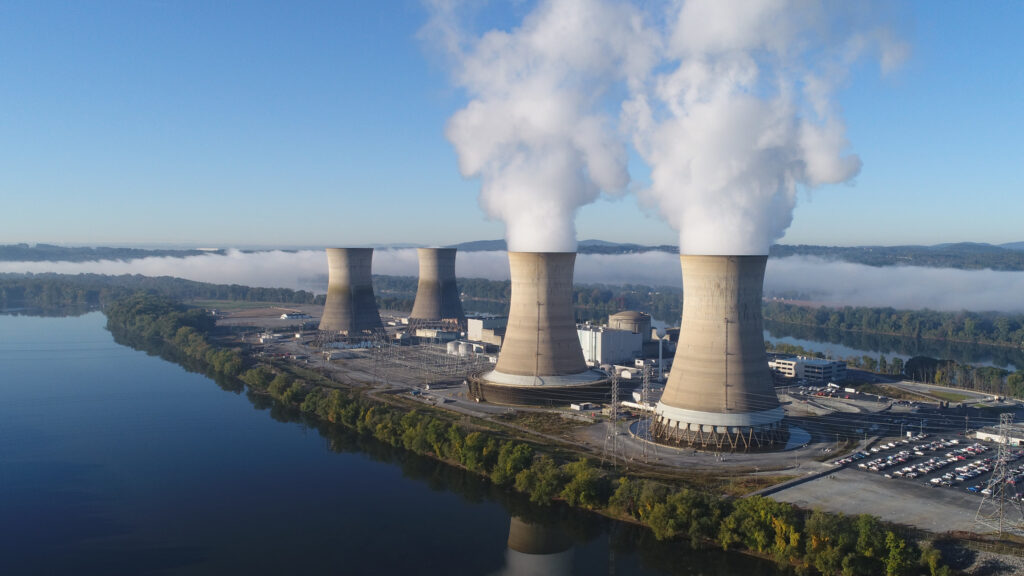Microsoft announced an energy deal to restart the Three Mile Island nuclear power plant on the Susquehanna River near Harrisburg, Pennsylvania.
Constellation Energy, the current owner of the plant, will now bring Unit 1 back online for Microsoft, including investing $1.6 billion to restore the reactor by 2028.
Details are unknown, but Microsoft has reportedly offered to purchase the plant’s output for 20 consecutive years.
Three Mile Island is best known as the site of the worst nuclear accident in U.S. history, when a partial meltdown occurred in one of the reactors in 1979, sparking public fear and distrust of nuclear energy.
The melted-down plant’s Unit 2 reactor was permanently shut down, but Unit 1 continued to operate until it was shut down in 2019 due to competition from cheaper natural gas.


Microsoft says the deal is in line with its commitment to be carbon negative by 2030. Nuclear energy is a carbon-free source of electricity, but controversy persists over radioactive waste management.
Constellation Energy CEO Joseph Dominguez welcomed the move, saying, “This plant should never be shut down. It will produce energy that is as clean as all renewable energy. [wind and solar] “Built in Pennsylvania over the past 30 years.”
Constellation Energy said the plant requires “significant investment,” including upgrading and refurbishing “turbines, generators, main power transformers, cooling and control systems.”
AI’s Growing Power Demand
Microsoft’s decision to move into nuclear energy shows yet again that AI and the data center technologies that support it require enormous energy.
The company has been expanding its data centers globally, many of which are dedicated to supporting AI workloads, including training and deploying models that require massive amounts of compute power.
Training large-scale AI models can consume thousands of megawatt hours (MWh) of electricity.
According to some sources, OpenAI’s GPT-3, for example, required over 1,200 MWh for training, which is enough electricity to power tens of thousands of homes for a day.
Today, hundreds, if not thousands, of powerful AI models are actively being trained at any given time. AI models require power not only during training but also for their daily tasks.
The surge in energy demand driven by AI is part of a broader trend: The International Energy Agency (IEA) says data centers are now 1.3% of global electricity Consumption is expected to increase significantly, and AI infrastructure will drive much of this increase.
By 2030, data centers will be 8% of the world’s electricityAs our reliance on digital services and electric vehicles grows, our already stretched energy grid is becoming more strained.
Coal and nuclear fill the void
While interest in nuclear energy underscores the tech industry’s need for low-carbon alternatives, AI’s demands on power are giving coal a surprising new lease of life.
According to Bloomberg Report from earlier this yearThe rapid expansion of data centers is delaying the closure of coal plants across the U.S. and frustrating the push for cleaner energy sources.
In places like Kansas City, for example, utility providers have had to halt plans to close coal-fired power plants to build data centers and electric vehicle battery factories.
Microsoft’s decision to use nuclear energy to power its AI operations has brought into focus a broader discussion about the sustainability of AI.
As the growth of the tech industry outpaces energy supply, innovative solutions are needed to bridge the gap between demand and production. For example, OpenAI has invested heavily in Helion, a nuclear fusion project that will soon be online.
“If Helion works, it could potentially be a way out of the climate crisis, as well as a path to a much higher quality of life,” OpenAI CEO Sam Altman said at X. “It’s been a pleasure to have been a part of this for the past seven years and we’re thrilled to be investing even more.”
Despite the controversy, nuclear energy offers a credible solution to AI’s energy needs, especially in regions that struggle to fully transition to renewable energy.
But the risks are significant. Nuclear power plants still require enormous resources to build and maintain, and nuclear waste is difficult to dispose of. Many will see this as trivializing decarbonization and renewable energy strategies.
It’s safe to say that the Microsoft-Constellation Energy deal is still in its early stages.
But such exclusive and private deals are rare, showing that the power of the AI industry rests on literal force.


